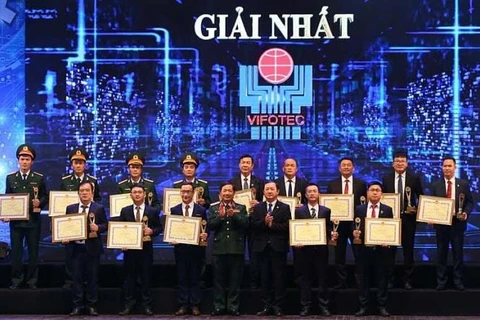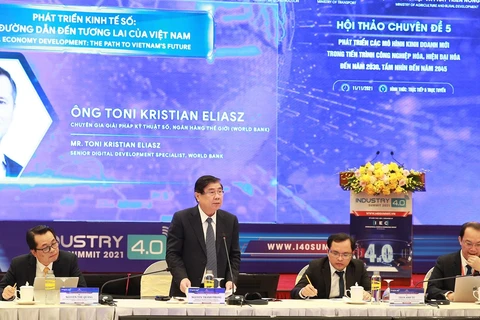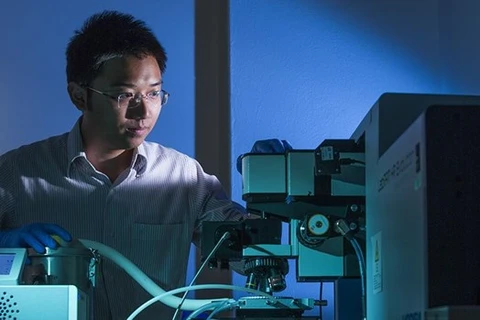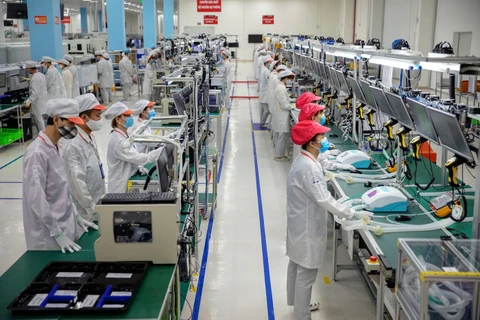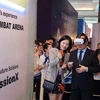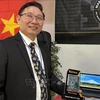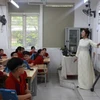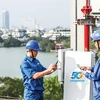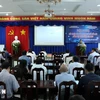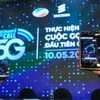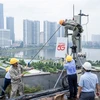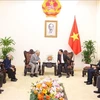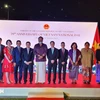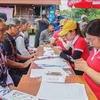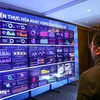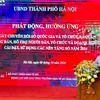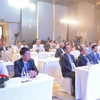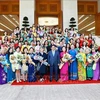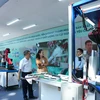 Chairman of the VinFuture Prize Council Sir Richard Henry Friend presides over the seminar on January 19. (Photo: vtc.vn)
Chairman of the VinFuture Prize Council Sir Richard Henry Friend presides over the seminar on January 19. (Photo: vtc.vn) In his opening remarks, Deputy Minister of Science and Technology Bui The Duy said countries around the world, including Vietnam, are facing common challenges related to climate change and the COVID-19 pandemic’s impacts. Promoting the application of science - technology, especially high technologies like big data, AI, and clean energy, is an essential solution to those challenges.
At a session on the future of energy, participants focused on the limitedness of fossil fuels such as coal and oil, global energy trends in the future, sources of clean energy, and technologies using those energy sources so as to reduce climate change impacts.
They also talked about scientific advances, the equality in accessing those advances, their applicability, and the energy-related responsibility of the community and each citizen.
Regarding the future of AI, scientists shared the view that AI has been developing strongly and extensively applied to various aspects, and that the continually changing world and the fourth Industrial Revolution, particularly AI advances, have been greatly influencing humans.
Speaking at the session on the future of global health, Deputy Minister of Health Tran Van Thuan expressed his belief that science - technology will be a useful “weapon” in combating the COVID-19 pandemic and improving human health in the time ahead.
Participants also discussed challenges caused by the pandemic, population ageing, urbanisation, environmental pollution, and work-related stress to human’s quality of life and longevity, global health trends, and each individual’s role in disease prevention and control.
The first VinFuture Sci-Tech Week, from January 18 to 21, gathered thousands of scientists, policymakers, and entrepreneurs around the globe.
The seminar on January 19 was presided by Chairman of the VinFuture Prize Council Sir Richard Henry Friend from Cambridge University in the UK. The professor of physics is the laureate of the Millennium Prize for Technology in 2010 and also one of the most influential physicists in the world./.
VNA
